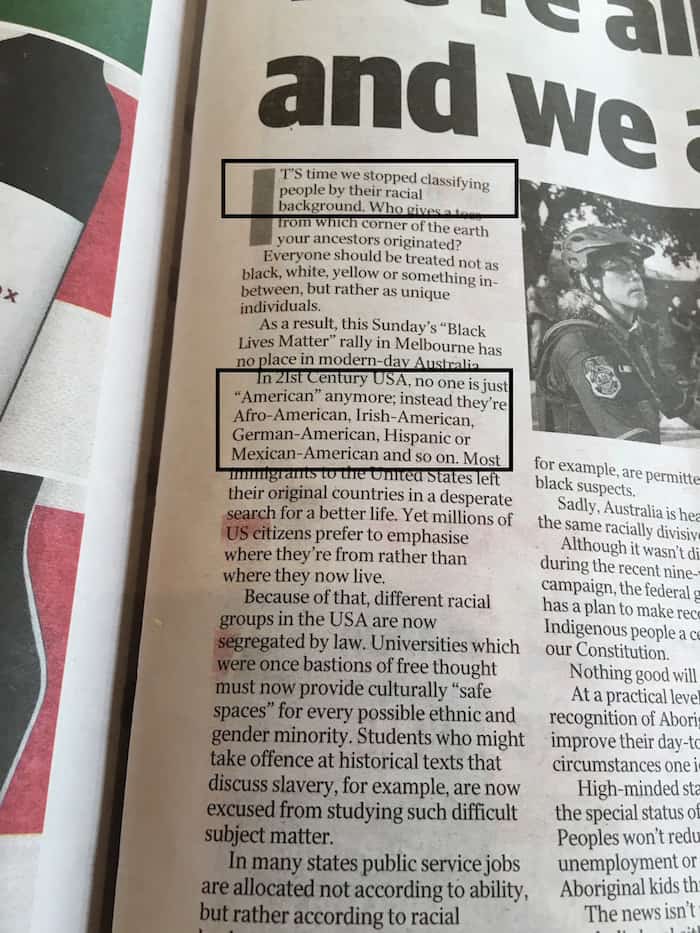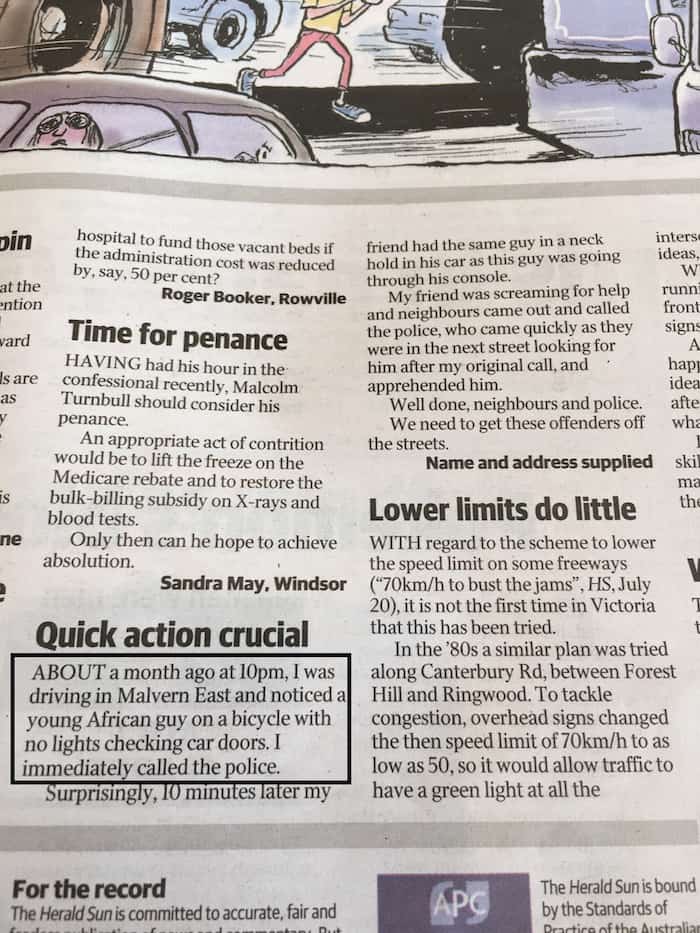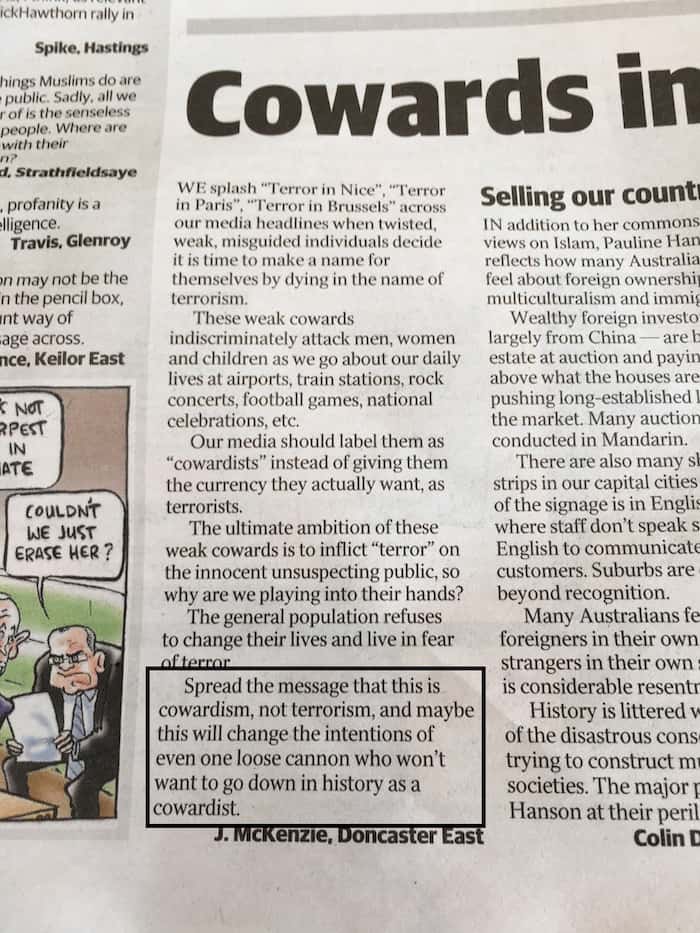Hey guys!
I know this is probably not being released at the best time as you’re all now studying Unit 4 AOS 1, BUT, that doesn’t mean you don’t stop looking for examples for the end of year exams. In fact, when I was in year 12, I was already preparing my final examples/quotes list in July for the exam in November. Better to start sooner than later!
In particular, I often read the Herald Sun (often characterised as being more right-wing than left-wing), and when I read it’s interesting how often language is referred to in some way by either journalists or commenters in the opinion section. I still can’t stress enough how great of a way this is to find modern examples of language use – yes, it may take more time, but if you ever have a free Saturday or Sunday morning during the term, take the time to read the Herald Sun/The Age (whatever newspaper suits you) and keep your eyes peeled for modern examples!
Political Correctness – Creating Opposite Effect
The whole point of politically correct language is to create social harmony and minimise prejudice against certain groups in society. However, sometimes, it seems to have the opposite effect – that being create further marginalisation and segregation!
I came across this interesting article by Tom Elliot from the Herald Sun, with the article entitled ‘We’re all Aussies and we all matter’ in July 2016. He argues that “no one is just “American” anymore; instead they’re Afro-American, Irish-American, Hispanic and so forth”. Traditionally speaking, calling a black person ‘Afro-American’ would be deemed politically correct as this lexical phrase recognises their ancestral heritage.
However, he’s of the belief that if we continue to label people as to where their ancestors come from, we really would therefore never achieve social harmony – in fact, the opposite would occur… racial segregation. As quoted by Elliot, “It’s time we stopped classifying people by their racial background”. Ultimately by creating racial groups, much of society becomes labelled and segregated according to this racial terms.
This whole notion of political correctness achieving the opposite effect can also be reflected in the use of ‘blind’ vs ‘visually impaired’. In 1993, the National Federation of the Blind in the USA deplored the usage of the euphemistic phrase ‘visually impaired’ as they believed it prompted a greater level of shamefulness and ultimately created further marginalisation of this group. Ultimately, they were happy being called blind and wanted others to not use the politically correct equivalent.

Covert Racism
Covert racism is the idea that a person is being racist in a subtle and not-so-obvious manner. If you have been following the media lately, you’ll notice that much of the media (and even politicians) are playing to the fears of the general population about terrorism and the perceived terrorist views of refugees and migrants. This is how Donald Trump has risen to power – he’s played on these fears about radical Islam and keeping America safe.
In particular, I was reading a comment in the Herald Sun about how he ‘noticed a young African guy on a bicycle with no lights checking car doors’. As I am sure you’re aware, the media often portray African migrants as thieves and in many cases unable to assimilate (all said from an objective viewpoint). Why is it that the commenter had to label this thief as ‘African’? Just say hypothetically speaking if this person were Australian, do you think he would’ve said ‘young Australian guy on a bicycle’? What perception is the author trying to create this African man? This is a classic example of covert racism, no matter what your political beliefs are.

Language Influences Behaviour & Perceptions?
In the 2011 exam, there was a great essay topic on how language can influences thoughts, perceptions and behaviour. This is very valid in today’s society because all of our language choices reflect something about our internal belief system and even our behaviour.
In the Herald Sun, a commenter in the comment section wrote about how the media should label terrorists as “cowardists instead of giving them the currency they actually want as terrorists”. J. McKenzie believes ultimately that if the media spreads the message that these horrific acts are seen as ‘cowardism’ then maybe “this will change the intention (behaviour) of even one loose cannon who won’t want to go down in history as a cowardist”. Now, whatever your political beliefs are regarding this viewpoint, it ultimately reflects how society will try to change the linguistic choices to, therefore, alter the behaviour.

About Learnmate
Learnmate is a trusted Australian community platform that connects students who want 1:1 or small group study support, with tutors who are looking to share their knowledge and earn an income. From primary school to high school subjects — from science and maths to niche subjects like visual communication — Learnmate can help you improve academic performance or boost confidence, at your pace with the tutor that you choose.
Students and parents can easily find and screen for tutors based on their location, their subject results or skill level, and whether they provide in-person or online sessions. Learnmate is proud to provide tutors in Melbourne, Sydney, Geelong, Brisbane, Hobart, Canberra, Perth & Adelaide, and other locations.